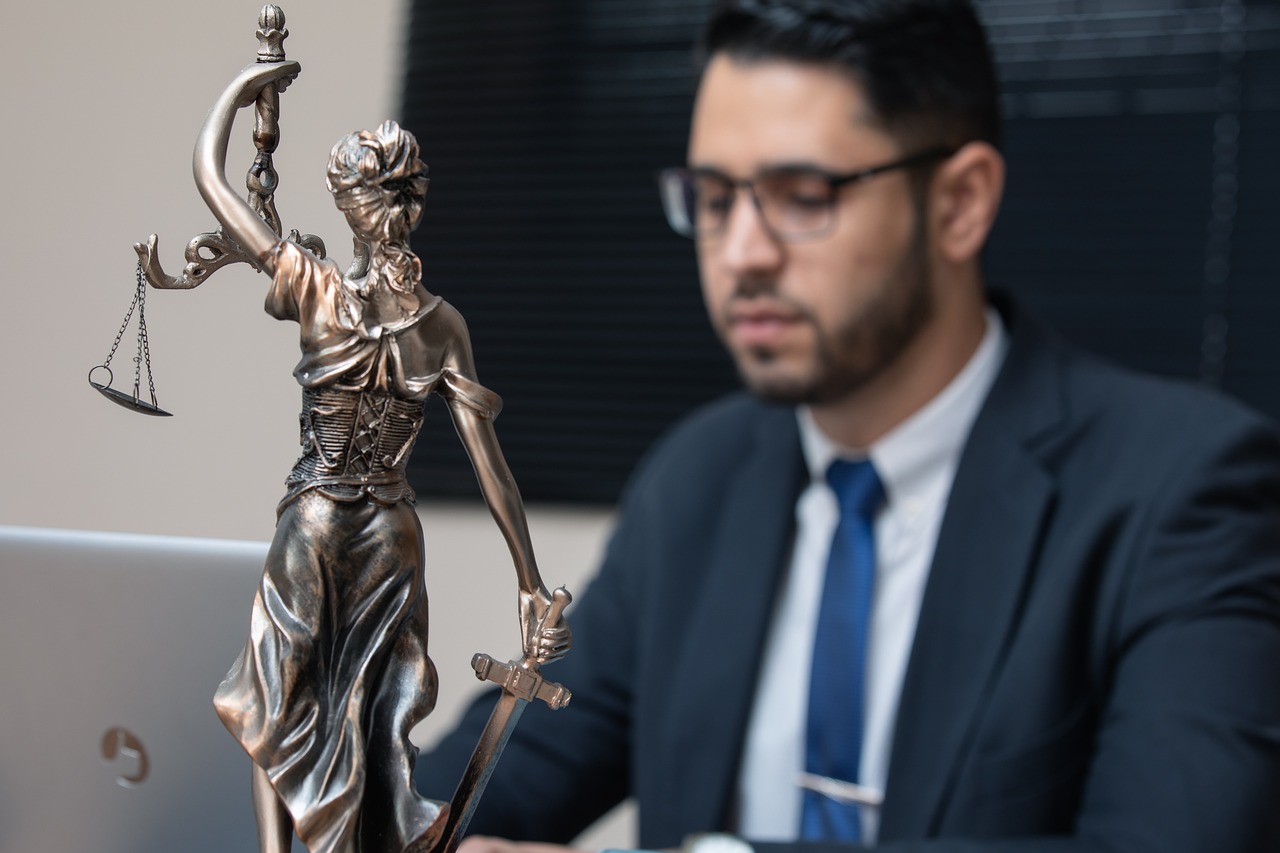Now Reading: You Slipped, They Shrugged: What to Do When a Business Won’t Take Responsibility
-
01
You Slipped, They Shrugged: What to Do When a Business Won’t Take Responsibility

You Slipped, They Shrugged: What to Do When a Business Won’t Take Responsibility
Slip and fall accidents are more common than most people realize, and they can result in serious injuries. From fractures to concussions and long-term mobility issues, the consequences can be life-altering. Even more frustrating is when the business where the accident occurred refuses to take responsibility. If you’ve found yourself in this situation, knowing how to respond is essential not just for your justice but to protect others from future harm.
Understanding Premises Liability
Premises liability is a legal concept that holds property owners and occupiers responsible for maintaining safe environments. It ensures that individuals who visit stores, restaurants, malls, and other public spaces are not unnecessarily exposed to danger.
Duty of Care in Commercial Settings
Businesses owe a duty of care to anyone who lawfully enters their premises. This includes regular customers, delivery personnel, vendors, and visitors. The property must be reasonably safe and free from known hazards. If a dangerous condition exists, it must be fixed promptly or marked with visible warnings.
Common Hazards That Lead to Accidents
Some frequent causes of slip and fall incidents in commercial spaces include:
- Spilled liquids or greasy floors in supermarkets
- Torn carpeting or loose floorboards in office buildings
- Poor lighting in stairwells or corridors
- Snow and ice accumulation outside entrances
- Cables or merchandise obstructing walkways
When these issues go unresolved, the business could be held liable for any injuries that result.
Immediate Actions After a Slip and Fall
If you’ve fallen on a business’s property, the steps you take immediately afterward are crucial not only for your health but for any potential legal claim.
1. Get Medical Attention Immediately
Even if the injury feels minor, it’s important to see a doctor. Some injuries, like internal bruising or head trauma, may not show symptoms right away. A medical report also provides documented evidence linking the injury to the fall.
2. Document Everything
Try to record as much information as possible, including:
- Photos of the scene and the hazard
- Time and location of the incident
- Any lack of warning signs
- Your injuries
- Eyewitness contact information
Eyewitness testimony and photographic evidence are especially valuable when businesses dispute liability.
3. Report the Incident to Management
Always report your fall to a supervisor, store manager, or property owner. Ask for a copy of the incident report and note the names of any employees you spoke with. This report becomes part of the official record and can support your claim later.
Why Businesses Often Deny Responsibility
After reporting your injury, you might expect a business to apologize and offer assistance. Sadly, that’s not always the case. Many businesses will attempt to protect their bottom line by denying fault or delaying response.
Common Defenses Used by Businesses
- Lack of notice: Claiming they didn’t know about the hazard in time to correct it.
- No negligence: Asserting that they took all reasonable precautions.
- Comparative fault: Arguing that you were distracted or careless.
- Open and obvious: Stating that the danger was visible and should have been avoided.
These arguments are designed to reduce or eliminate their liability but they can be challenged with the right approach.
Building a Case for Negligence
To succeed in a personal injury claim, you must prove that the business was negligent and that this negligence directly caused your injury. Four elements must be established:
1. Duty
You were lawfully present on the property, and the business owed you a duty of care.
2. Breach
The business breached that duty by allowing a hazardous condition to exist.
3. Causation
The unsafe condition directly caused your fall and injury.
4. Damages
You suffered measurable losses such as medical expenses, lost income, or pain and suffering.
Gathering strong evidence to support each element will help you build a compelling case.
Role of Surveillance and Witness Testimony
Many businesses have security cameras, which can work for or against you. If footage exists of your fall, request that it be preserved. This video can be powerful proof of what happened and can contradict false statements made by the business.
Witnesses can also be invaluable. Statements from customers or employees who saw the incident or knew about the hazard beforehand can support your version of events.
Hiring a Legal Professional
If the business won’t cooperate or denies responsibility, a qualified attorney can help. A Slip and fall lawyer understands the nuances of premises liability law and will advocate on your behalf.
Benefits of Legal Representation
- Thorough investigation: Lawyers gather evidence, review records, and interview witnesses.
- Expert negotiation: Insurance companies often offer low settlements or deny valid claims. An attorney knows how to push back.
- Litigation support: If a fair settlement can’t be reached, your attorney can take the case to court.
Most personal injury lawyers work on a contingency fee basis, meaning they only get paid if you win or settle your case so you don’t have to worry about upfront legal costs.
The Ethical Side: Corporate Social Responsibility
There’s more to this issue than just legality. When businesses ignore safety or deny responsibility, it reflects a failure in ethical leadership. Corporate ethics play a vital role in public trust and long-term business success.
What Is Corporate Social Responsibility?
Corporate social responsibility (CSR) refers to a company’s commitment to conduct business in an ethical, sustainable, and socially conscious manner. This includes:
- Providing safe environments
- Treating customers fairly
- Addressing complaints transparently
Neglecting these responsibilities can damage a company’s brand and alienate customers. To learn more, visit Corporate Social Responsibility.
Encouraging Accountability and Safety Improvements
When you take steps to hold a business accountable, you’re not just seeking justice for yourself you’re promoting a safer environment for everyone.
How Your Actions Make a Difference
- Filing a claim can prompt internal investigations and safety reviews.
- Leaving reviews alerts other customers to unsafe conditions.
- Reporting to local agencies (like the health department or consumer protection offices) may trigger official inspections or penalties.
By speaking up, you help foster a culture of accountability and improvement.
Know Your Time Limits
Most states have statutes of limitations for filing personal injury claims, typically ranging from one to three years from the date of the incident. It’s important to act quickly, especially if:
- You’re facing medical bills
- You’ve lost income from missed work
- You’re dealing with long-term pain or disability
An attorney can help ensure you don’t miss critical deadlines.
What Compensation Can You Seek?
Depending on the severity of your injury and its impact on your life, you may be entitled to compensation for:
- Medical bills and treatment
- Rehabilitation or physical therapy
- Lost wages and future earning potential
- Pain and suffering
- Emotional distress
- Permanent disability or disfigurement
In rare cases involving egregious negligence, punitive damages may also be awarded to punish the business and deter future misconduct.
Real-World Example
Consider a shopper who slips on an unmarked wet floor in a grocery store. The fall results in a fractured wrist and surgery. The store refuses to accept responsibility, claiming no one reported the spill. However, security footage shows the spill existed for over 30 minutes. With legal help, the shopper successfully sues the store and receives compensation for medical costs and lost income.
This outcome wouldn’t have been possible without proper documentation, legal guidance, and persistence.
Conclusion: Demand Accountability, Protect Your Rights
Slipping and falling due to someone else’s negligence can be traumatic, painful, and financially draining. But when a business tries to brush it off, you don’t have to take it lying down.
By understanding premises liability, knowing how to gather evidence, and seeking legal help, you can take control of the situation. More importantly, you can contribute to creating safer spaces for everyone.
Don’t let a business’s indifference dictate your recovery or your rights. Speak up, take action, and demand the accountability you and others deserve.
About the author: Mark Scott
With a law degree under his belt, Mark Scott understood very early that law communication was a relatively neglected area. He decided to help people by “translating” the language and offering information and advice in a clear, helpful, and actionable manner. For this reason, instead of finding him in court, you will most likely find his name online, where he is very active and thriving as a legal columnist. His part of making the world a better place is to make the law a less convoluted maze. He aims to make it easier for people to understand when and how to seek legal counsel, how to proceed in a significant number of legal matters, and how to find the proper resources so they can stand up for their rights.











